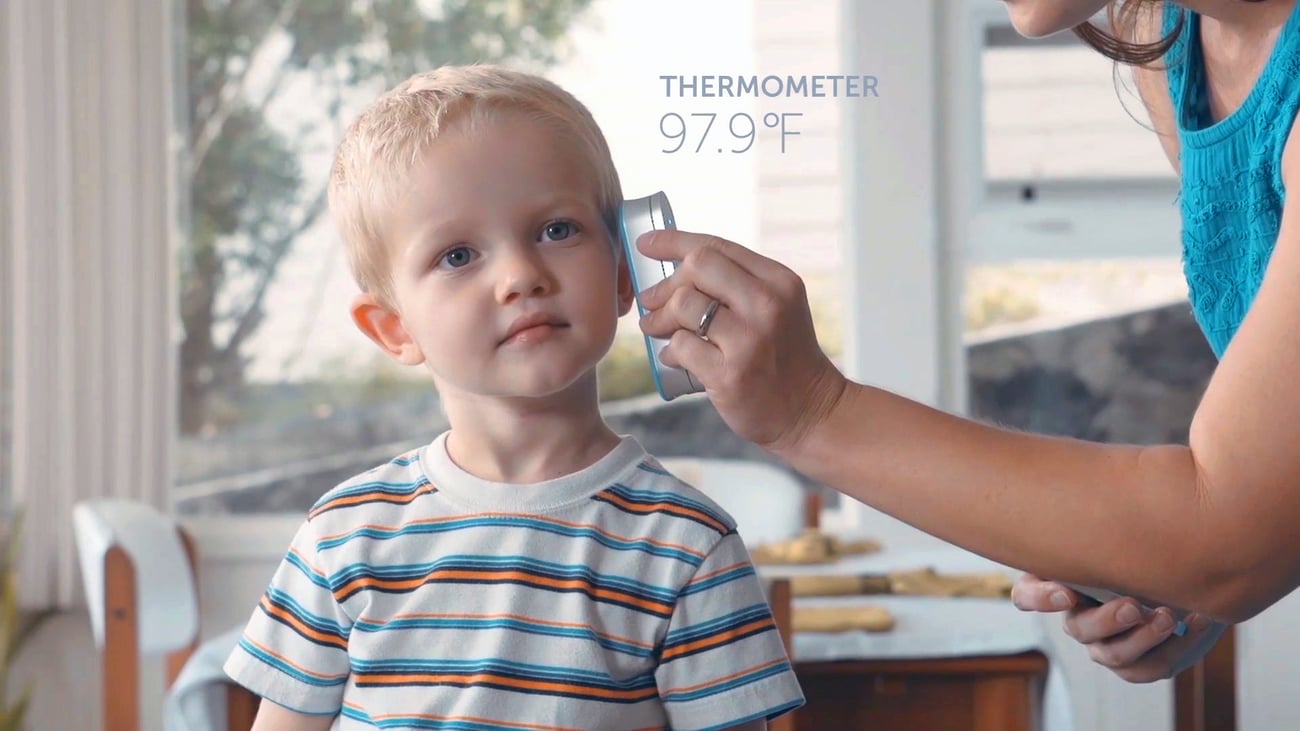Aussie ‘boys’ take remote medicine to the world with digital stethoscope and contactless thermometer

As a child, Dr Andrew Lin loved computers and wanted to be a coder. He chose pragmatism instead, and graduated with a bachelor of medicine from the University of Melbourne.
His fascination with technology didn’t get buried. It got rekindled quickly four years ago when he met Dr Hon Weng Chong who was a fellow medical student at the same university. The two had met four years ago at Hackathon (event for teams to build startups), Lin says.
Two years ago, the duo then in their final year, and two others, built a smart stethoscope which won a $75,000-Microsoft Imagine Cup grant. Their original stethoscope was aimed at tackling the problem of detecting pneumonia early, something which isolated or unskilled communities have problems with. It worked on a Windows 7 phone, operating on Miscrosoft’s cloud computing platform, Azure.
Hon and Lin then went on to create a startup, CliniCloud which on Friday launched a high-tech medical kit comprising a digital stethoscope and non-contact thermometer.
The kit is aimed at helping home users take readings and send information using a mobile app for medical diagnosis. Readings from the two devices can be stored on the phone, or in the cloud. The app also provides metrics on respiratory and heart rates for measures against what’s normal and not. Prompts on the app guide a user through the checkup, such as where to place the stethoscope.
Lin told Idealog: “When I was a child, I loved computers and I was always amazed at how technology is making our lives easier. I always wondered how tech could be used to more meaningfully help patients.”
He says when he met Hon at Hackathon 4 years ago, the latter coded something pretty impressive – something similar to the Uber app, all in a couple of days. Hon is the chief technology officer of CliniCloud.
The two strongly believe in remote medicine and its benefits. “We felt that a consumer-friendly stethoscope is a first great tool to help achieve this. We also wanted to create a more holistic experience for the consumer that actually delivers actionable outcomes. That’s why we have been working hard to integrate with telemedicine services (to help create the physician link) and added the thermometer to the kit (the other critical data point in general care diagnosis.”
The biggest technology challenge CliniCloud has faced is to build a medical grade hardware. “Building hardware is hard, from design to manufacturing to QA. We have spent a lot of time and energy figuring this out, but it was definitely a lot harder than we initially envisaged.”

The company has just raised US$1 million (NZ$1.34 million) from angel investors in Australia and the US.
Lin says fund raising was also challenging given the digital health field is so young and the idea of consumer health has yet to be proven.
“But this is changing and we’ve been fortunate that investors have started to turn more attention to consumer healthcare recently.”
Orders for the kit can be done online but maiden shipments are available only in July. The kit is sold online on the company’s website, at US$109, shipping is free.




